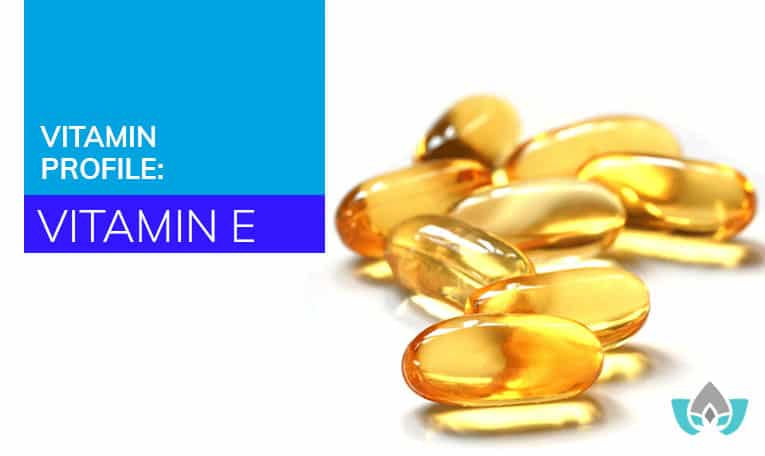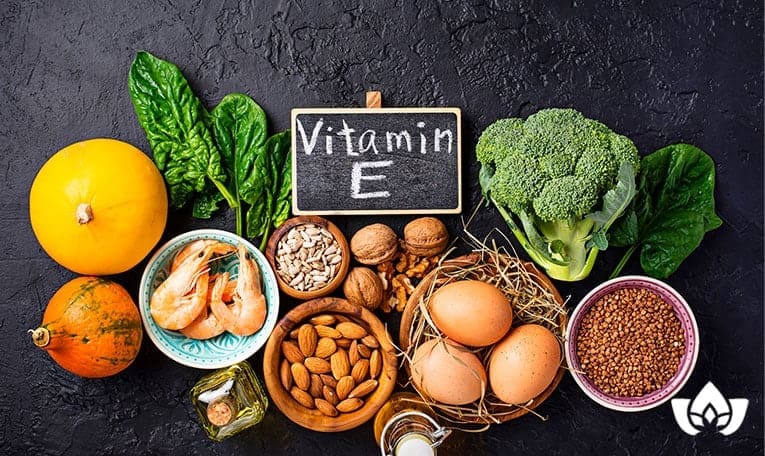
There are a lot of different vitamins and minerals, all of which do different things for the body.
These days, with the advent of COVID-19 across the globe, a lot of people are taking more interest in vitamins and supplements which can help strengthen the immune system.
Although there is currently no known cure for COVID-19, we can look at natural solutions for immune health and ways we can help to make our immune systems stronger in general.
Today we’ll take a closer look at the properties of vitamin E and its effects on your body and health.
Keep reading to learn more.
What Is Vitamin E?
Vitamin E is a vitamin and antioxidant with anti-inflammatory properties.
Because it is fat-soluble, it can be stored in the body and used as it is needed.
It’s also an essential nutrient, which means it can’t be synthesized by the body –you’ll need to get it through diet or supplementation.
What Does Vitamin E Deficiency Look Like?
Vitamin E deficiency is rare, however, it is more common in people who have conditions which make it difficult for them to absorb fat, due to it being a fat-soluble vitamin.
Symptoms of vitamin E deficiency include:
- Poor coordination
- Muscle weakness
- Nerve damage
- Damage to the retina
- Impaired immune response
Benefits Of Vitamin E
There are a number of important roles vitamin E plays in your health and the functioning of your body.
Let’s take a look at some of the benefits vitamin E provides.

1. It Supports Your Immune System
Vitamin E is important for immune function, and one effect of vitamin E deficiency is a weakened immune system.
A 2018 study notes that along with vitamin A and vitamin C, vitamin E may inhibit the progression of AIDS.
Additionally, vitamin E has anti-inflammatory properties and prevents blood clotting.
2. It’s An Antioxidant
Antioxidants can help protect your cells from damage due to oxidative stress.
Free radicals are formed in the body, and although they perform some important functions, such as fighting infection, left unchecked they can cause a lot of harm and cell damage quite quickly.
Antioxidants fight free radicals, keeping their levels in-check and preventing them from leading to illnesses including heart disease, diabetes, and cancer.
Other common antioxidants include glutathione, vitamin A, vitamin C, copper, zinc, and polyphenols.
3. It Keeps Your Eyes Healthy
Cataracts are one of the most common causes of loss of vision as people age, possibly due to oxidative stress.
Thus, it has been thought that the use of antioxidants can help to reduce the incidence of cataracts.
A 2015 meta-analysis in the journal Public Health Nutrition reviewed the relationship between vitamin E and cataracts.
It was found that higher vitamin E levels were related to a decreased risk of age-related cataracts.
Vitamin b2 can also be beneficial for eyesight.
Risks Of Taking Too Much Vitamin E
Just as with any other substance, there are some risks associated with taking too much vitamin E.
Because vitamin E is fat-soluble, it is possible to overdose on this vitamin (unlike water-soluble vitamins like vitamin B12, the excess of which are eliminated through urine).
The biggest risk is bleeding due to its anticoagulant effects on the blood, and some research has linked excess vitamin E to hemorrhagic stroke.
It is also recommended to avoid use of vitamin E supplements during the early stages of pregnancy as it has been shown to increase the risk of congenital heart defects.
One study found men using vitamin E supplements along with a multivitamin were at higher than average risk of developing prostate cancer.
Other side effects of excessive vitamin E include:
- Headache
- Nausea
- Fatigue
Dietary Sources Of Vitamin E
It’s a good idea to speak with your physician or naturopath before taking vitamin E supplements.
However, most experts agree that it’s difficult to overdose on dietary vitamin E.
If you are looking to add more vitamin E to your diet, some great sources of this important nutrient include:
- Nuts, including almonds and hazelnuts
- Sunflower seeds
- Leafy green vegetables such as spinach and broccoli
- Eggs
- Kiwifruit
- Tomatoes
- Mangos
Book An Appointment At The Mindful Healing Clinic
Are you looking for natural ways to improve your immune system?
Do you worry you aren’t getting enough nutrients in your diet?
The Mindful Healing Clinic can help.
Although we are not currently offering in-person consultations, due to the COVID-19 pandemic, we are still here to talk to you over the phone, or via a virtual consult.
Contact us today and take the first step towards better health.
Until next time,
Dr. Maria Cavallazzi, N.D
Mindful Healing Naturopathic Clinic
Mississauga, ON L5M 1L7
(905) 819-8200
► https://g.page/MindfulClinicNaturopathic
Dr. Maria Cavallazzi is a medical doctor from Colombia where she practiced as a family physician for 8 years until she moved to Canada 16 years ago and became a naturopathic doctor in Mississauga.


